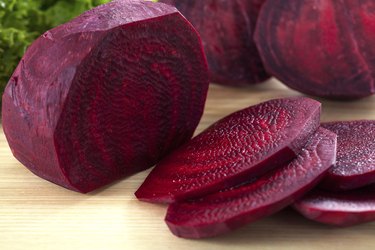
Choline is an essential nutrient, considered a vitamin, according to the Linus Pauling Institute. Your body is able to synthesize some choline, but not enough to maintain health. Supplementing your diet with choline is necessary for memory, muscle functioning and fat metabolism. High doses of choline may produce fishy body odor, especially in a rare disorder called trimethylaminuria, or TMAU. This syndrome may cause social isolation and depression, making low choline content foods a must.
Dairy
Video of the Day
The adequate daily intake, or AI, for choline is set by the Institute of Medicine at 550 mg per day. Avoidance of choline in your diet is advised if you have TMAU, notes the Office of Rare Diseases Research. Dairy products tend, in general, to be high in choline, but a couple of items may be ingested sparingly. They include egg whites at 1.1 mg of choline per 100 mg of food, powdered cream substitute at 2.2 mg per 100 mg and part skim milk cheese, low moisture, at 14.1 for 100 mg of food.
Video of the Day
Cereals
The United States Department of Agriculture recognizes that close to 1 percent of Americans may have problems with choline, TMAU and fishy body odor. To this end it developed a data base of foods containing choline. Cereals that are relatively low in choline, containing less than 14 mg per 100 mg of food, include Cap'n Crunch Peanut Butter Crunch, Kellogg's Rice Krispies, Kellogg's Fruit Loops, Kellogg's Corn Flakes, Kellogg's Cocoa Krispies, regular, quick and instant oatmeal, and Cream of Wheat.
Fruits and Vegetables
The USDA lists most fruits as less than 12 mg per 100 mg of food, with the exception of dried apricots at 13.9 mg, avocados at 14.1 mg, clementines and dried figs around 14.5 mg, and orange juice from concentrate at 19 mg. Vegetables that contain less than 12 mg of choline include canned or raw beets, raw cabbage, carrots, celery, cucumbers, kale, lettuce, onions, peppers, squash, zucchini and tomatoes.
Is this an emergency? If you are experiencing serious medical symptoms, please see the National Library of Medicine’s list of signs you need emergency medical attention or call 911.